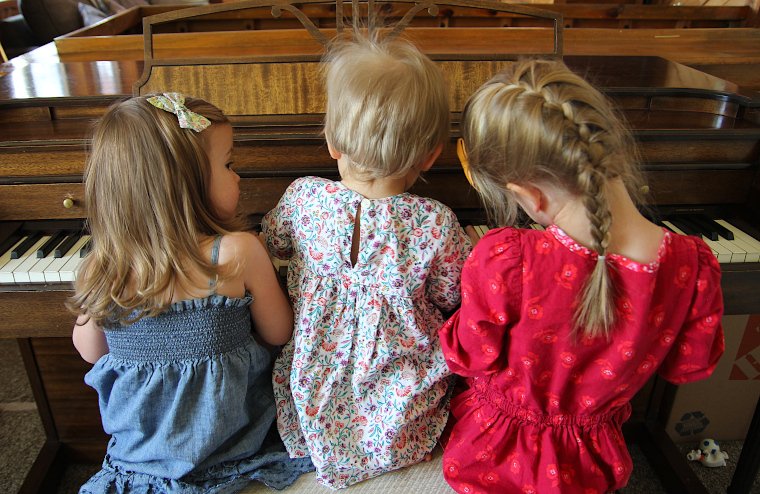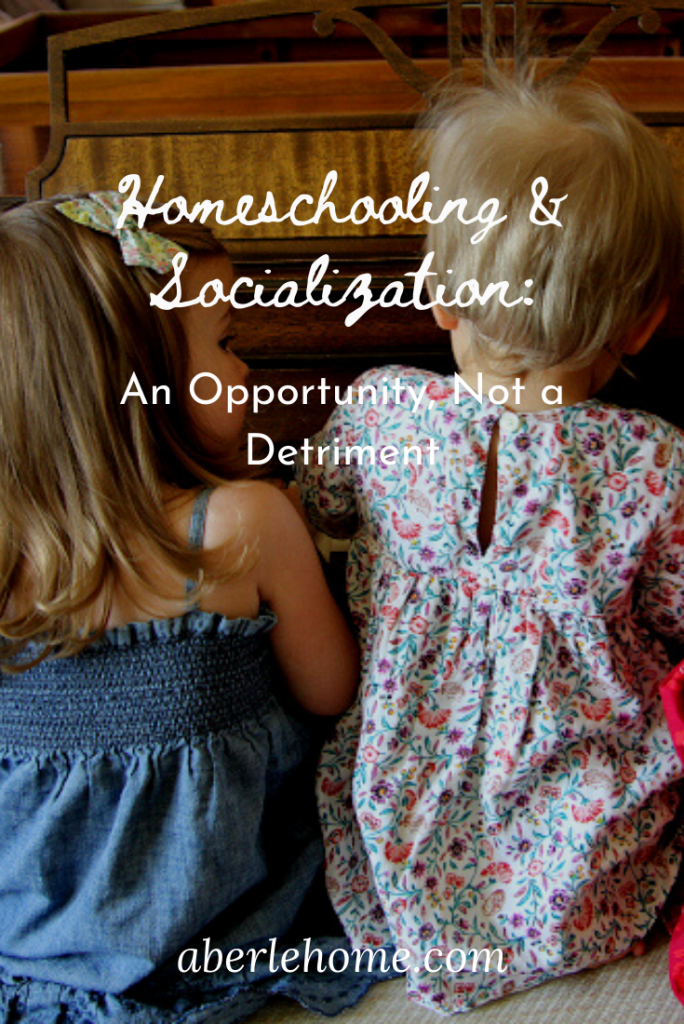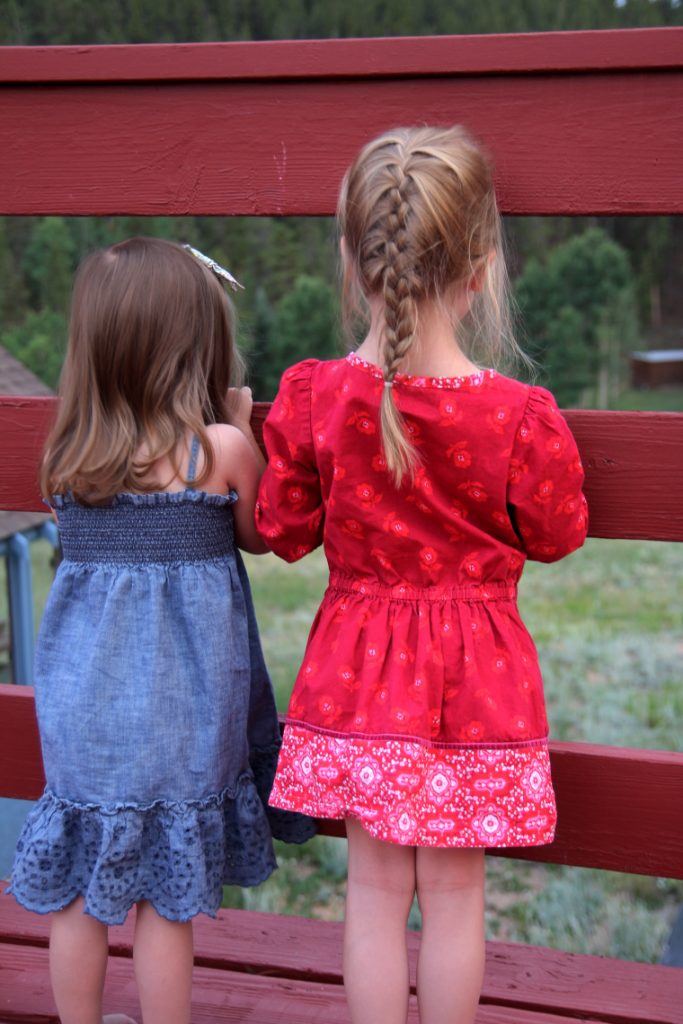
This post may contain affiliate links. See my full disclosure. As an Amazon Associate, I earn from qualifying purchases.
I was homeschooled growing up with my three younger sisters, so my family was very used to answering the age-old, number-one question, “But what about socialization?”
(Along with the running-up question, “Do you get to do school in your pajamas?” Everyone’s dream, I guess.)

I suppose what they were really getting at with that question was to ask if we were isolated at home, or if we were going to grow up to be socially inept or awkward from not being around peers every day in a classroom setting.
Is homeschooling just a recipe for socialization issues?
In reality, it wasn’t always easy for my sisters and I to spend time with peers.
When I was in middle and high school, my little sisters were able to be part of a co-op on Friday mornings with other kids their ages. But for me and my sister after me, there wasn’t a co-op in place yet for older kids in our area. So for a while, our peer interaction was an occasional field trip or special event.
But if we think about it, social competence isn’t just a byproduct of kids spending every day with a bunch of other kids the same age, learning about life through their eyes.
Peers are important, but the meat of the social competence we gain comes from a culmination of all the real-to-life interactions and social experiences we have as we grow up.
“Socialization” develops as we receive direction and instruction from our parents on how to conduct ourselves. It happens as we grow up sharing life with siblings, learning how to communicate effectively and resolve conflict when we disagree.
It happens as we spend weekends with our grandparents hearing about the past and learning sound wisdom for the future. It happens as we are mentored and challenged by teachers and coaches.
It happens as we interact with people who are like us and those who are not like us. It happens as we meet new people and form new relationships.
It happens as we spend time with those older than ourselves, and those younger than ourselves. It happens as we work toward common goals with others in sports, learning, and life.
The beauty of homeschooling, then, is that we parents have the freedom to provide our children with extremely rich and diversified social opportunities, if we so choose (another one of the many reasons to homeschool). We just have to put forth the effort.
With this being said, it’s really not a detriment that our kids aren’t in a classroom setting on a daily basis, but rather an opportunity to be able to socialize our children in a way that’s more natural to everyday life.
So yes, look for other children your kids’ ages that they can socialize with. Make sure they have enough interaction with others that they don’t feel isolated at home. But also surround yourselves in community with others as a family. Build relationships over time.
Teach your children discretion, empathy, good etiquette, and listening skills. Show them by example to be conversational and personable. Grow close as a family.

Teach them to make phone calls, communicate with store clerks, meet new people, be competent hosts, orchestrate projects, be leaders, and be friends. If your child is shy, keep pushing them to overcome those social fears and know that your efforts will pay off in the long run.
And when acquaintances ask you, “Well, what about socialization?” you’ll know how to answer confidently.
New to homeschooling? How to Start Homeschooling Your Child – In 5 Steps
